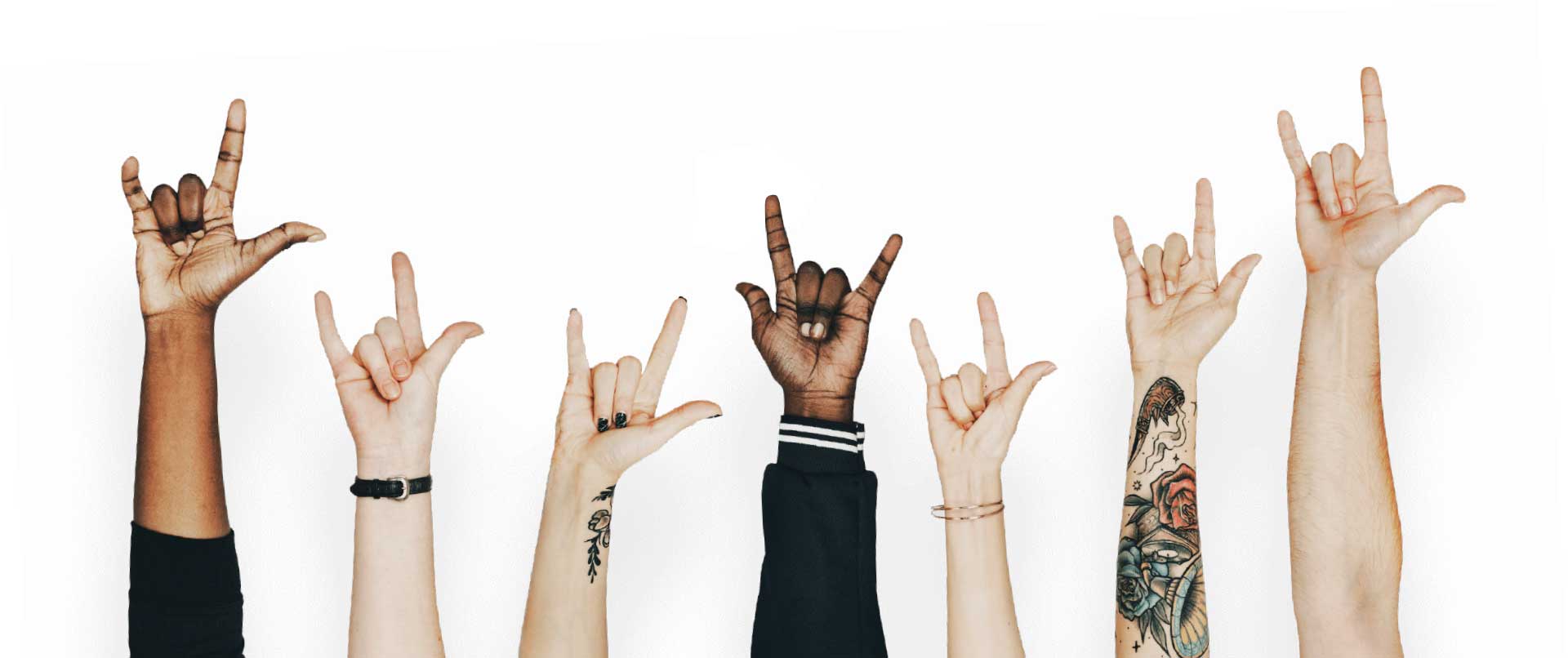If you think a young person may be experiencing harm but is reluctant to raise porn, we suggest starting with wider and more general questions around porn (see category ‘A’ below) or use general porn conversation openers, as outlined in Resource 2.1: Guiding Principles for Porn-Related Conversations.
- If you have any concerns about porn (e.g., you saw something that you found distressing, or felt worried you were watching too much), do you feel you can talk to someone in your whānau? If not, are there any other safe adults you can talk to?
- How does your family, faith, and culture view porn? How might that affect your own porn habits?
- Has anyone in your home, or in your family shown you porn?

Why these questions?
Some young people may…
- Struggle to have safe, supportive porn conversations at home.
- Feel shame around their porn usage.
- Have been exposed to porn by older family members (further assessment required).
*Note: Rainbow young people may experience a lack an acceptance of their sexuality/gender at home and subsequently feel more isolated and be less likely to seek help for porn-related issues.
Education/Employment
- Do you watch porn while at work/school?
- How do you think porn might be impacting different parts of your life? For example, school or university, work, family time?
- Have you ever posted or sold sexual photos/videos of yourself or someone else and feel concerned this may impact you or your future employment?
- Have you considered creating sexual content because you need the income?
- Do you watch porn while at work or school?

Why these questions?
Some young people may…
- Watch increasing amounts of porn throughout the day, before bed, or to help with sleep, which can interfere with daily life.
- Be vulnerable to being exploited in creating amateur online sexual content.

Why these questions?
Some young people may…
Experience body images issues or anxiety due to comparing their bodies or sexual performance to that of actors in porn.
Concerns around pressure to watch, act or re-enact porn, or porn disrupting schoolwork
- What sorts of things do you do online (schoolwork, gaming, porn etc)? How do you feel you’re managing your online habits?
- Some young people use porn as sex-ed now – what’s your thoughts on that? Have you ever felt any pressure from peers or sexual partners to watch porn? Or re-enact porn?
- Have you ever chosen to watch porn instead of, for example, socialising with friends and family or taking part in wider social activities?*
- Does anyone send you porn or ask you to watch porn?

Why these questions?
Some young people may…
- Feel pressured to watch porn or re-enact porn. (Further assessment for dating violence may be required.)
- Struggle with their porn habits and/or choose porn over social activities and become socially isolated.
*Note: This question may prompt concerns around problematic porn usage, and if so, further questions around porn usage patterns and impacts may be helpful – see category ‘S’ (struggling to cut down on porn or problematic porn usage).

Why these questions?
Some young people may…
Use substances to handle discomfort around certain sexual encounters, such as porn-related sexual requests, risky or painful sex, or other types of sex they are uncomfortable about.
This may be heightened amongst Rainbow young people, who can be more vulnerable to substances use (to help manage homo/bi/transphobia).
Concerns around sexual expectations, risky sex without care, consent, sexual identity, or relationships
- Have you had any uncomfortable sexual experiences? Have you felt pressured to watch or re-enact acts from porn?*
- Do you see much consent in porn? What’s your thoughts around that? How often do you ask, or get asked, for consent during real life sex?*
- Some young people are now trying more rough sex or risky sex. Are there any specific sex acts you have tried, or thought about trying, that you are not sure about, or that have been uncomfortable or confusing for you or the person/people you were with?*
- Do you think watching porn may have affected your sexual expectations or experiences? If so, how?
- Is porn impacting your sex life in a way you are not comfortable with? For example, needing porn for arousal, enjoying sex less, or preferring porn to real-life sex?
- Has watching different types of porn raised any questions about your own sexuality? Do you have any questions or concerns around this?

Why these questions?
Some young people may…
- Find frequent porn use is impacting their sexual expectations, and satisfaction.
- Feel pressured to re-enact porn or try riskier sexual acts.
- Struggle with negotiating sexual expectations.
- Have had confusing or negative experiences around rough or risky sex.
- Exhibit advanced sexual knowledge or language from watching porn at an early age.
Note: Rainbow young people are more likely to view porn to see same-sex representations and affirm their sexuality. They may, however, have uncomfortable viewing experiences as some sexuality and gender diverse genres reinforce homophobia and heteronormativity. Watching same-sex porn can also be part of some young people’s gender and sexual identity journey and can raise questions around gender and sexual attraction.
*Note: These questions may trigger disclosure of sexual violence and referral may be needed.
Concerns around mental health issues: porn related stress, shame, preoccupation, or anxiety
- Do you think porn may be impacting your mental health? For example, making you feel ashamed or guilty, or have you worrying about your body image. If so, in what way?
- Have you seen anything in porn that made you feel uncomfortable? How was that for you?
- Do you find yourself watching porn to help with sleep or to manage stress, anxiety, or other negative feelings?
- Some young people struggle to get the images in porn out of their mind, or find they think about porn during everyday activities. How has that been for you?
- Some young people feel upset by things they have seen while watching porn. Has this ever happened to you?
Concerns around struggling to cut down on porn or problematic porn usage
- Some young people who watch porn want to cut down but find it difficult. How has this been for you?
- How is porn impacting your day-to-day life? For example, your relationships, activities, sex-life, mental health?
- Some young people find themselves watching porn for long periods of time. What would be the usual and the longest time you watch porn?*

Why these questions?
Some young people may…
- Feel ashamed, anxious, or distressed about porn usage due to personal, religious, or cultural beliefs. These feelings can be a barrier to seeking help.
- Have ‘confusing or uncomfortable’ experiences with porn, particularly if they have felt both disturbed and aroused by porn at the same time.
- Use porn to manage stress and negative emotions or to help with sleep.
- Develop porn habits they struggle to break.
- Feel uncomfortable about something seen in porn. For example, homophobia or racism in porn.
- Feel triggered by porn, especially if there is a history of sexual assault.
- Use porn to help them understand previous sexual trauma.
- Experience preoccupation or intrusive thoughts following porn exposure.
- Struggle to reduce porn usage.
To learn more, see Resource 1.2: Potential Porn Impacts and Resource 3.3: Case Studies.
*Note: In the case of problematic porn usage, any assessment should focus on real-life impacts and drivers for wanting to cut down, rather than on frequency of usage. To learn more, see: Resource 3.4: Problematic Porn Usage.
Concerns around traumatic porn-related experiences and rough sex or choking
- Have you had a distressing or uncomfortable sexual experience? Or a sexual experience that was painful, or that you did not want to have?*
- Some young people are now trying more rough sex. Have you ever tried, or been asked to try, rough sex acts (e.g., choking) that you felt confused or unsure about?*
- Have you ever felt pressured to create, send or receive sexual content that made you feel uncomfortable?
Concerns around sexually aggressive sexual attitudes and behaviours
- Some young people find what they watch in porn changes over time. Has the content you watch changed over time? If so, in what way? (For example, it may now involve more scenes with violence.) How do you feel about that?
- Have you found yourself seeking or watching any porn content that worries you, or you think may affect you? Do you have any sexual fantasies you are worried about?
- Were any of your sexual partners not ‘into’ the type of sex you like? Have you found yourself pressuring sexual partners to try something you have seen in porn?

Why these questions?
Some young people may…
- Feel pressured to re-enact sexual behaviours seen in porn (e.g., rough sex) and can feel uncomfortable or disturbed by these experiences.
- Minimise or blame themselves for experiencing unwanted or unexpected rough sex or choking.
- Learn about sex from porn, try out things they have seen in porn, and lack understanding about affirmative consent.
- Have an increased acceptance of sexual aggression against women and likelihood of coercive behaviours (due to high exposure to sexually violent porn).
- Find themselves seeking more extreme porn for greater novelty or arousal.
- Have confusing sexual fantasies or intrusive thoughts regarding extreme and/or illegal sexual behaviours.
- Feel shame, confusion, or concern about being drawn to aggressive content.
- Be concerned about their own aggressive or coercive sexual attitudes and behaviours but be unaware of where to seek help and get support.
- Be coerced to create and/or post sexual content.
*Note: These questions may trigger disclosure of sexual violence or sexual abuse and referral to a specialist service may be needed.

“Porn is influencing the sexual lives of young people. They frequently told us that they were worried about how porn could influence sexual behaviour, shape expectations and reinforce stereotypes. … And they often wished they had not been as young as they were when they first saw it … Growing up with porn means young people’s ideas about sex, and their sexual behaviour, are being influenced by porn from a young age. This matters to young people, and they want adults to take this issue seriously.”